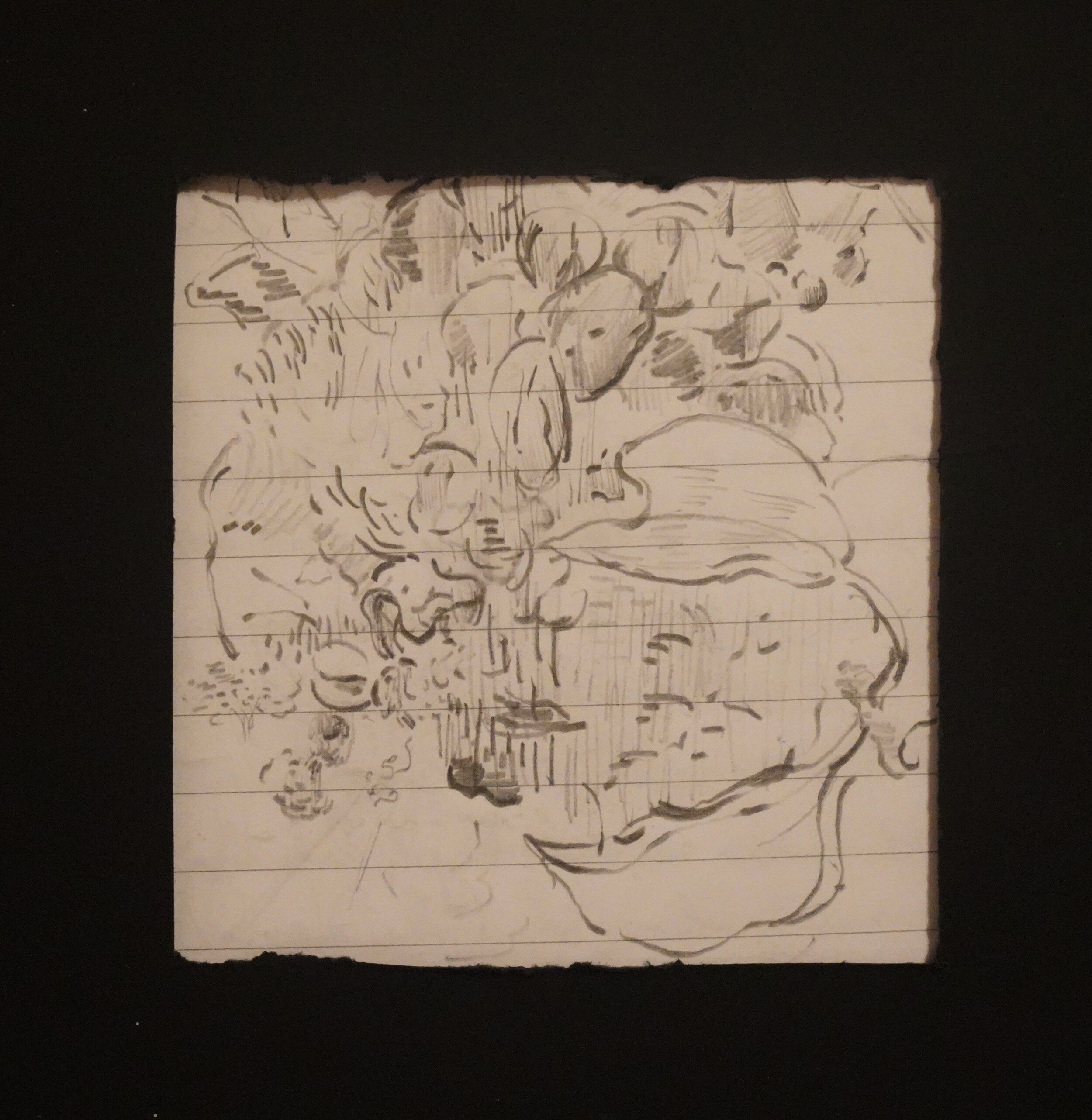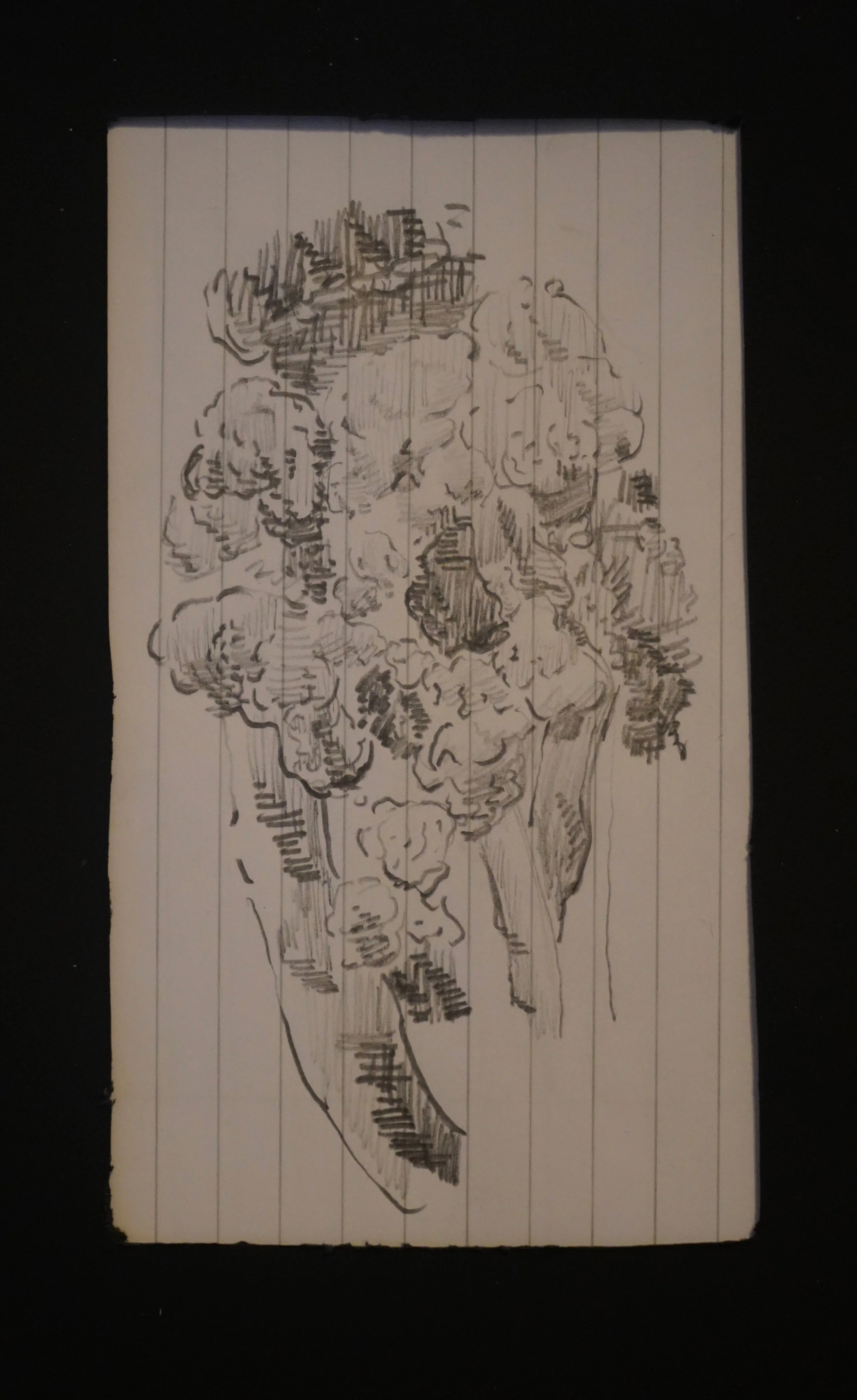Excerpt From an Exchange of Letters Between Novelists — by Russell Block
Q—,
The receipt of your letter reassures the hours of my afternoon that might otherwise have been lost to engagements less cerebral. The fact that literature provides cause for meditation beyond what quotidian life encourages, the fact which society has largely forgotten, is not lost on us. Like my spreadsheets, where after long hours of inserting formulas, and after testing these formulas locally before applying them to the whole, it appears we are in disagreement everywhere and down almost every line. My purpose in writing now, however, is to escape those spreadsheets. So too must I attempt to leave some of the weeds about Bloom’s introduction aside, lest I myself get caught in them. Many of my physics professors, as they hurried to conclude their lectures, would write a third order differential equation, or its simulacrum, having forgotten to annotate the order of the derivatives, such that their great labors did not ultimately compute. Someone more astute than me would invariably point out the oversight. It remains little wonder to me, having been all too content to go about my day with the details left off, that I failed to graduate. Unfortunately, we must operate with the same understanding of what Bloom is saying, in detail, or risk permanent disagreement. Your mischaracterization of Bloom is perhaps understandable, because Bloom’s pen can be accused of malfeasances his subject’s, Shakespeare’s, cannot. All the same, it remains clear Bloom does not refuse or qualify his notion of Shakespeare’s invention of the human. The only place your excerpts would seem to demonstrate vacillation is in Bloom’s use of the word representation in two different contexts. Representation of cognition, personality, and character constitute the repetition, the mere mirroring of, humanity. We both maintain the best literature is more than this, more than representation of cognition, personality and character, and more than mere repetition of the world as it seems. We cannot therefore hold fast to the more conservative statements about Shakespeare referenced in Bloom’s introduction. What is secured in the best literature if we say it fails to ever meaningfully influence our relationship to what we are, or what we do not yet know we are? While not nothing, it would be utterly lacking in mystery. Mimesis, the representation of reality, which constitutes the essence of change as substance distinct from repetition, is the device by which Shakespeare invents, by which personality is animated and not merely sculpted. The immanence in Michelangelo’s David is what Shakespeare’s characters possess and see through to the play’s ends. The reason Homer’s name cannot be placed in Shakespeare’s stead within your misprision of Bloom’s apparent, but immaterial, self-refutation (“What Shakespeare invents are ways of representing human changes,”) is because Homer did represent reality, not merely cognition, although Sophocles could sacrifice himself to your mischaracterization in lieu of Homer or Shakespeare. Homer cannot take Shakespeare’s place in the statement eo ipso, nor according to your characterization of it.
The more delicate question is of how Shakespeare and Homer diverge. In treating of the subject, it will also serve to defend the notion that the lexicon Shakespeare provides for, and by which we describe our experience, is entire. This lexicon, moreover, stand in relation to personality like the seed and soil to the vine. The vine of personality does not express the existence of a grape, not in itself. We owe our grape to its origins in literature. If it were left to taste, distinguishing the quality of the Homeric grape from the Shakespearean would be impossible. Our intellect’s capacity to detect these grades in the aesthetics is the promise of reading, a promise whose rewards are reaped in writing. Limiting myself to book three of the Iliad, I observed the quality in Homer that differs from the Shakespearean mimesis, the quality that holds with my reading of Homer more generally, too. All is axiomatic, perfect in its purpose, a completeness that is perfect. Noticed first by the gut, the quality underlying the text will stand out as a mimetic principle, both necessary and accounting for the marvel that is the Iliad, assuming you can entertain the claim. Staggeringly robust, and incapable of straying nonetheless, it lacks neurosis, which is in Shakespeare an implement of mimetic diversion. Doubt, the swerve from the axioms’ main thrust, creates space the Bible possesses and that the completeness of the epic disallows. In the hands of Shakespeare, that swerve denotes more than space; it rather creates multitudes. Shakespeare’s command of language and the power of his thought distill these multitudes into demonstrations of human mystery that are unique. To read the coherence of Homer improves a reader. It fosters an ancient sense of beauty in us, and educates through its sublime poetry a style, a style the reader will find exists within them like permanence. Homer’s coherence, however, is immediate; it rests right on the surface as monument’s whose beauty transcends the history to which they attest catch light. Shakespeare’s plays are more like the strings, drumheads, and columns of an orchestra, receptive of the movement produced through them.
Should Homer be lost to the world tomorrow, the Iliad and the Odyssey could not be recovered through Shakespeare or any other writer’s work. Homer, like none other, provides us with archetypes, stunning example of people inextricable from the dynamics of the epics, and their place within the epic. For everything Odysseus is, he is not boundless in himself. Those demand placed on him by the strange workings of the gods, monsters, sorcery, and nature, create the circumstances for his distinction, circumstances whose axioms Odysseus inevitably answers. Hamlet and Falstaff generate themselves and could converse in any literary setting they opened their eyes upon.
While not outdoing Homer, Joyce creates his own dimensionality by having Leopold Bloom, blithely unaware of his station in an epic, engage with thought prurient and trivial, quotidian and transcendent, in a fashion Odysseus never could. Kafka’s dialogues are almost an extension of Helen’s axiomatic interlocution with Aphrodite, an extension animated by the novel notion of arbitrary complications and consequences inexplicable by traditional divinity. It seems to me no writer stands in a similar relationship to Shakespeare, although perhaps Milton does. Joyce and Kafka, Joyce consciously, Kafka not al all consciously, found mean to play with the impeccable marble of Homer. Milton could merely misunderstand Shakespeare in a manner that was new. For now, I must curtail myself before I venture lamely to wrangle with Lucifer.
-Russell




